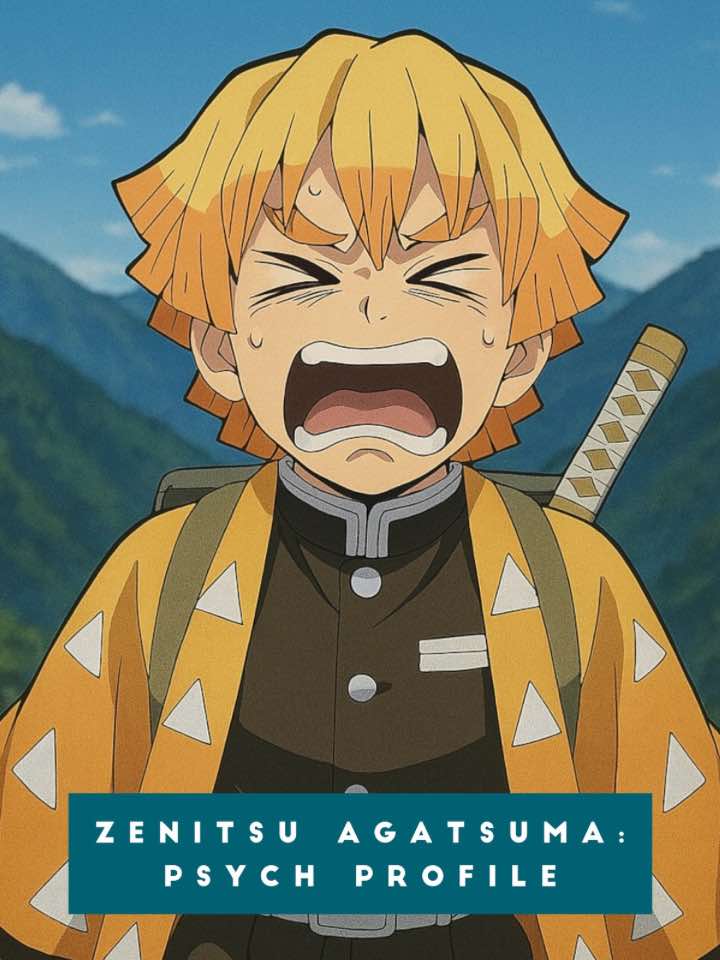Zenitsu Agatsuma: a Psycholgical Profile
From a clinical perspective, Zenitsu displays signs consistent with chronic anxiety disorder. His exaggerated fear response, tendency to catastrophize, and reliance on others for emotional regulation point toward a deep-seated survival mechanism rooted in early trauma. He was abandoned, mistreated, and manipulated by those who were supposed to guide him. These formative experiences shaped his self-concept as weak and incapable, leading to an internal dialogue filled with self-doubt and panic.
Yet paradoxically, Zenitsu’s fear does not render him helpless. Under extreme stress, particularly when unconscious, he accesses a deeply buried skill set and becomes an extraordinarily competent fighter. This dichotomy—fearful consciousness, fearless unconsciousness—suggests the presence of dissociative coping mechanisms. His mind, unable to reconcile his identity as a protector with his internalized weakness, has compartmentalized these traits. In a state of unconscious action, free from the noise of his anxiety, his true potential emerges.
Moreover, Zenitsu’s arc illustrates the slow evolution of self-efficacy. His growth is not linear, but it is authentic. He begins to challenge the narrative he has told himself. He fights not only demons, but also his learned helplessness. He remains afraid, but he acts anyway.
Zenitsu Agatsuma is a layered portrayal of trauma response, coping, and hidden strength. He embodies the reality that courage is not the absence of fear, but action in spite of it. This makes him one of the most psychologically rich characters in Demon Slayer. And bottom line, let’s face it, he can be annoying, but he’s kind of lovable! And there’s a little bit of Zenitsu in all of us.



